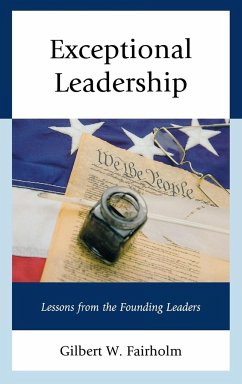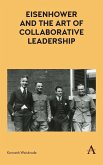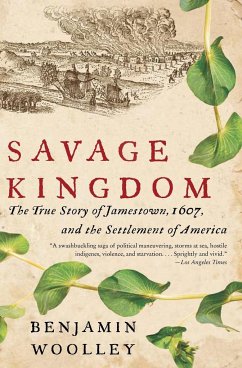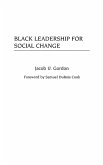- Gebundenes Buch
- Merkliste
- Auf die Merkliste
- Bewerten Bewerten
- Teilen
- Produkt teilen
- Produkterinnerung
- Produkterinnerung
America is best described by values of independence, freedom, and liberty. These values led our founding leaders to undertake revolution. America is American because being Americans each of us assimilates from birth these ideals and values. Americans intuitively assume that they have rights that no one-not their bosses or even government can take away. They see themselves as free enough to choose the kind of life they will live and able to move from where they are to anyplace else-both literally and metaphysically. American workers think they have the right to work or not to work according to…mehr
Andere Kunden interessierten sich auch für
![The Constitution of the United States (Including The Declaration of Independence and The Bill of Rights) The Constitution of the United States (Including The Declaration of Independence and The Bill of Rights)]() United States Of AmericaThe Constitution of the United States (Including The Declaration of Independence and The Bill of Rights)14,99 €
United States Of AmericaThe Constitution of the United States (Including The Declaration of Independence and The Bill of Rights)14,99 €![The Constitution of the United States (Including The Declaration of Independence and The Bill of Rights) The Constitution of the United States (Including The Declaration of Independence and The Bill of Rights)]() United States Of AmericaThe Constitution of the United States (Including The Declaration of Independence and The Bill of Rights)8,99 €
United States Of AmericaThe Constitution of the United States (Including The Declaration of Independence and The Bill of Rights)8,99 €![George Washington (Volume II) George Washington (Volume II)]() Henry Cabot LodgeGeorge Washington (Volume II)16,99 €
Henry Cabot LodgeGeorge Washington (Volume II)16,99 €![George Washington (Volume I) George Washington (Volume I)]() Henry Cabot LodgeGeorge Washington (Volume I)15,99 €
Henry Cabot LodgeGeorge Washington (Volume I)15,99 €![Eisenhower and the Art of Collaborative Leadership Eisenhower and the Art of Collaborative Leadership]() Kenneth WeisbrodeEisenhower and the Art of Collaborative Leadership89,99 €
Kenneth WeisbrodeEisenhower and the Art of Collaborative Leadership89,99 €![Savage Kingdom Savage Kingdom]() Benjamin WoolleySavage Kingdom16,99 €
Benjamin WoolleySavage Kingdom16,99 €![Black Leadership for Social Change Black Leadership for Social Change]() Jacob GordonBlack Leadership for Social Change94,99 €
Jacob GordonBlack Leadership for Social Change94,99 €-
-
-
America is best described by values of independence, freedom, and liberty. These values led our founding leaders to undertake revolution. America is American because being Americans each of us assimilates from birth these ideals and values. Americans intuitively assume that they have rights that no one-not their bosses or even government can take away. They see themselves as free enough to choose the kind of life they will live and able to move from where they are to anyplace else-both literally and metaphysically. American workers think they have the right to work or not to work according to their-the worker's-standards and values of what is appropriate. They grant their bosses fealty as a personal decision and not through compulsion. Of course, most Americans understand that work life entails some limits on personal freedom. But, importantly, the idea and the ideal of freedom are fundamentally present in their make-up. Figuratively, the sky is the only limit to our potential for personal and professional development. Workers expect these values to be honored in the workplace. When they are not, they expend energy in thwarting work systems to maximize their ability to do what their leader wants, but in their way.
Produktdetails
- Produktdetails
- Verlag: Lexington Books
- Seitenzahl: 334
- Erscheinungstermin: 1. Juli 2013
- Englisch
- Abmessung: 235mm x 157mm x 24mm
- Gewicht: 696g
- ISBN-13: 9780739184141
- ISBN-10: 0739184148
- Artikelnr.: 37743406
- Verlag: Lexington Books
- Seitenzahl: 334
- Erscheinungstermin: 1. Juli 2013
- Englisch
- Abmessung: 235mm x 157mm x 24mm
- Gewicht: 696g
- ISBN-13: 9780739184141
- ISBN-10: 0739184148
- Artikelnr.: 37743406
Gilbert W. Fairholm is Emeritus Professor of Public Administration at Virginia Commonwealth University, and was Adjunct Professor of Management Systems, University of Richmond, and has served as Visiting Professor of Political Science at Hampden-Sydney College and Averett University. He was a Senior Fellow of the Center for Excellence in Municipal Management, GWU. Professor Fairholm has extensive background as a government executive serving as Administrator of State and Local Finance, Wisconsin Department of Revenue, Deputy Administrative Director, New York State Department of Motor Vehicles, Deputy Director, New York State Office for Community Affairs, Principle Management Analyst, New York State Division of the Budget, and Director of Management Improvement, New York State Department of Transportation. He served for 4 years as City Manager in Layton, Utah. Gil has consulted extensively in government, university and business environments. He headed a university-based consultation service giving advice and policy guidance to top-level African local government officials; developed the first urban government structure in Northern Nigeria. He analyzed operations, decision systems, policy implementation, and personnel and financial relationships. He has significant experience consulting with Virginia state and local governments. Gil also developed policy proposals respecting community relations in urban renewal agencies in Philadelphia; prepared program budgeting system for all Puerto Rican cities. Much of this work has been developmental in nature, e.g. creating 3 university leadership programs; serving as first city manager in a new Council-Manager city; creating of a system of urban government forms for Northern Nigeria where none existed before; consolidating transportation-related functions in New York into a new department, defining its goals and describing its proposed structure and procedures and coordinating new program and systems developments. Professor Fairholm is the author of over 150 articles, reports and analyses. His 13 previous books are a direct result of his practical work, but reflect a theory-building, even a philosophical bent. They represent a culmination of his experience and personal growth in the field of leadership. All have found place in standard leadership bibliographies.
Acknowledgments Chapter 1: Introduction: American Exceptional Leadership The Responsibilities of Both Leader and Led The Founding Documents and the Values and Principles Contained Therein About America Exceptionalism Chapter 2: Enduring Values That Made America American The Scope of Concern Natural rights Universal Human Equality Opportunity Facilitating Happiness Liberty and Independence Freedom Fairness Chapter 3: Enduring Principles of Leadership Action Leadership Principles Embedded in the Constitution Nurturing Unity
We the People
Justice, Happiness and Peace
establish justice, insure domestic tranquility
Defense
provide for the common defense
Facilitating Commerce
promote the general welfare
Individual Freedom and Independence
the blessings of liberty
Organizing Principles Embedded in the Preamble of the Constitution Consent of the Governed The Separation of Powers Checks and Balances3 Division of Powers and Responsibilities External Agency [Foreign] Entanglements Factional Negotiations and Compromise PART I: The Formative Years Introduction Chapter 4: Americäs Independent Spirit Yankee Doodle Background and Provisions Implications for Leaders Chapter 5: Unity, The Albany Plan of Union, 1754 Background and Provisions Implications for Leaders Chapter 6: Inherent Rights to Property and Happiness The Virginia Bill of Rights, June 12, 1776 Background and Provisions Implications for Leaders Chapter 7: The Preeminence of Natural Rights July 4, 1776, The Unanimous Declaration Of The Thirteen United States Of America Background and Provisions Implications for Leaders Chapter 8: Moral Leadership through Service The Virginia Act for Establishing Religious Freedom, 1786 Background and Provisions Implications for Leaders Chapter 9: Organizing for Union, Justice, and the General Welfare The Constitution of the United States The Bill of Rights Background and Provisions Implications for Leaders PART II: Development of a New Nation Introduction and Commentary The Northwest Ordinance of 1787 Federalist Paper No. 10 (1787-8) The United States Judiciary Act of 1789 George Washington
s Farewell Address (1796) Thomas Jefferson
s First Inaugural Address (1803) The Star-Spangled Banner (1814) Chapter 10: Overcoming Internal Conflict Federalist #10 - The Size and Variety of the Union as a Check on Faction, Daily Advertiser, New York: New York. Thursday, November 22, 1787, James Madison Background and Provisions Implications for Leaders Chapter 11: Finding Liberty via Organizational Leadership An Act to Establish The Judicial Courts Of The United States. 1789 Background and Provisions Implications for Leaders Chapter 12: Linking Religion, Morality, and Education to Leadership The Northwest Ordinance, July 13, .1787: An Ordinance for The Government Of The Territory Of The United States Northwest Of The River Ohio Background and Provisions Implications for Leaders Chapter 13: Preserving Unity from Internal and External Rivalries George Washington
s Farewell Address, 1796 Background and Provisions Implications for Leaders Chapter 14: Equal and Exact Justice to All Thomas Jefferson
s First Inaugural Address, 1801 Background and Provisions Implications for Leaders Chapter 15: Coordinating Leadership Under Law Marbury v. Madison, 1803 Background and Provisions Implications for Leaders Chapter 16: Leading with Courage, Liberty, and Continuity
The Star-Spangled Banner
- 1814 Background and Provisions Implications for Leaders PART III: The Early National Period 1816-1855 Introduction and Commentary An Act Prohibiting Importation of Slaves of 1807 The Monroe Doctrine (1823) Cherokee Nation v. Georgia (1831)
My Country, 'Tis of Thee" (1831) Chapter 17: Prioritizing Freedom over Profit Act To Prohibit the Importation of Slaves 1807 Background and Provisions Implications for Leaders Chapter 18: Protecting Prosperity and Innate Freedoms Madison's War Message. June 1, 1812 Background and Provisions Implications for Leaders Chapter 19: Seeking Unity amid Diversity Report and Resolutions of the Hartford Convention Background and Provisions Implications for Leaders Chapter 20: Leading toward the Future The Monroe Doctrine--Extracts From President Monroe's Seventh Annual Message To Congress. December 2, 1823 Background and Provisions Implications for Leaders Chapter 21: Balance in Leading Free and Independent People Fairly Cherokee Nation V. Georgia 1831 Background and Provisions Implications for Leaders Chapter 22: Leadership is Changing Attitudes "My Country, 'Tis of Thee" Background and Provisions Implications for Leaders Chapter 23: American Leadership Has a Paper Trail Core Values That Still Inform American Leadership Human Rights Building Unity The Meaning of Equality Happiness Liberty and Independence Chapter 24: Principles Guiding Effective Human Relationships Exceptional Leadership Take Place in Interpersonal Relationships Separation of Powers and Checks and Balances Morality and Religion Freedom Wellbeing Negotiation and Compromise Extra-organizational Relations The Meaning of Justice Bibliography Founding Documents References Leadership References
We the People
Justice, Happiness and Peace
establish justice, insure domestic tranquility
Defense
provide for the common defense
Facilitating Commerce
promote the general welfare
Individual Freedom and Independence
the blessings of liberty
Organizing Principles Embedded in the Preamble of the Constitution Consent of the Governed The Separation of Powers Checks and Balances3 Division of Powers and Responsibilities External Agency [Foreign] Entanglements Factional Negotiations and Compromise PART I: The Formative Years Introduction Chapter 4: Americäs Independent Spirit Yankee Doodle Background and Provisions Implications for Leaders Chapter 5: Unity, The Albany Plan of Union, 1754 Background and Provisions Implications for Leaders Chapter 6: Inherent Rights to Property and Happiness The Virginia Bill of Rights, June 12, 1776 Background and Provisions Implications for Leaders Chapter 7: The Preeminence of Natural Rights July 4, 1776, The Unanimous Declaration Of The Thirteen United States Of America Background and Provisions Implications for Leaders Chapter 8: Moral Leadership through Service The Virginia Act for Establishing Religious Freedom, 1786 Background and Provisions Implications for Leaders Chapter 9: Organizing for Union, Justice, and the General Welfare The Constitution of the United States The Bill of Rights Background and Provisions Implications for Leaders PART II: Development of a New Nation Introduction and Commentary The Northwest Ordinance of 1787 Federalist Paper No. 10 (1787-8) The United States Judiciary Act of 1789 George Washington
s Farewell Address (1796) Thomas Jefferson
s First Inaugural Address (1803) The Star-Spangled Banner (1814) Chapter 10: Overcoming Internal Conflict Federalist #10 - The Size and Variety of the Union as a Check on Faction, Daily Advertiser, New York: New York. Thursday, November 22, 1787, James Madison Background and Provisions Implications for Leaders Chapter 11: Finding Liberty via Organizational Leadership An Act to Establish The Judicial Courts Of The United States. 1789 Background and Provisions Implications for Leaders Chapter 12: Linking Religion, Morality, and Education to Leadership The Northwest Ordinance, July 13, .1787: An Ordinance for The Government Of The Territory Of The United States Northwest Of The River Ohio Background and Provisions Implications for Leaders Chapter 13: Preserving Unity from Internal and External Rivalries George Washington
s Farewell Address, 1796 Background and Provisions Implications for Leaders Chapter 14: Equal and Exact Justice to All Thomas Jefferson
s First Inaugural Address, 1801 Background and Provisions Implications for Leaders Chapter 15: Coordinating Leadership Under Law Marbury v. Madison, 1803 Background and Provisions Implications for Leaders Chapter 16: Leading with Courage, Liberty, and Continuity
The Star-Spangled Banner
- 1814 Background and Provisions Implications for Leaders PART III: The Early National Period 1816-1855 Introduction and Commentary An Act Prohibiting Importation of Slaves of 1807 The Monroe Doctrine (1823) Cherokee Nation v. Georgia (1831)
My Country, 'Tis of Thee" (1831) Chapter 17: Prioritizing Freedom over Profit Act To Prohibit the Importation of Slaves 1807 Background and Provisions Implications for Leaders Chapter 18: Protecting Prosperity and Innate Freedoms Madison's War Message. June 1, 1812 Background and Provisions Implications for Leaders Chapter 19: Seeking Unity amid Diversity Report and Resolutions of the Hartford Convention Background and Provisions Implications for Leaders Chapter 20: Leading toward the Future The Monroe Doctrine--Extracts From President Monroe's Seventh Annual Message To Congress. December 2, 1823 Background and Provisions Implications for Leaders Chapter 21: Balance in Leading Free and Independent People Fairly Cherokee Nation V. Georgia 1831 Background and Provisions Implications for Leaders Chapter 22: Leadership is Changing Attitudes "My Country, 'Tis of Thee" Background and Provisions Implications for Leaders Chapter 23: American Leadership Has a Paper Trail Core Values That Still Inform American Leadership Human Rights Building Unity The Meaning of Equality Happiness Liberty and Independence Chapter 24: Principles Guiding Effective Human Relationships Exceptional Leadership Take Place in Interpersonal Relationships Separation of Powers and Checks and Balances Morality and Religion Freedom Wellbeing Negotiation and Compromise Extra-organizational Relations The Meaning of Justice Bibliography Founding Documents References Leadership References
Acknowledgments Chapter 1: Introduction: American Exceptional Leadership The Responsibilities of Both Leader and Led The Founding Documents and the Values and Principles Contained Therein About America Exceptionalism Chapter 2: Enduring Values That Made America American The Scope of Concern Natural rights Universal Human Equality Opportunity Facilitating Happiness Liberty and Independence Freedom Fairness Chapter 3: Enduring Principles of Leadership Action Leadership Principles Embedded in the Constitution Nurturing Unity
We the People
Justice, Happiness and Peace
establish justice, insure domestic tranquility
Defense
provide for the common defense
Facilitating Commerce
promote the general welfare
Individual Freedom and Independence
the blessings of liberty
Organizing Principles Embedded in the Preamble of the Constitution Consent of the Governed The Separation of Powers Checks and Balances3 Division of Powers and Responsibilities External Agency [Foreign] Entanglements Factional Negotiations and Compromise PART I: The Formative Years Introduction Chapter 4: Americäs Independent Spirit Yankee Doodle Background and Provisions Implications for Leaders Chapter 5: Unity, The Albany Plan of Union, 1754 Background and Provisions Implications for Leaders Chapter 6: Inherent Rights to Property and Happiness The Virginia Bill of Rights, June 12, 1776 Background and Provisions Implications for Leaders Chapter 7: The Preeminence of Natural Rights July 4, 1776, The Unanimous Declaration Of The Thirteen United States Of America Background and Provisions Implications for Leaders Chapter 8: Moral Leadership through Service The Virginia Act for Establishing Religious Freedom, 1786 Background and Provisions Implications for Leaders Chapter 9: Organizing for Union, Justice, and the General Welfare The Constitution of the United States The Bill of Rights Background and Provisions Implications for Leaders PART II: Development of a New Nation Introduction and Commentary The Northwest Ordinance of 1787 Federalist Paper No. 10 (1787-8) The United States Judiciary Act of 1789 George Washington
s Farewell Address (1796) Thomas Jefferson
s First Inaugural Address (1803) The Star-Spangled Banner (1814) Chapter 10: Overcoming Internal Conflict Federalist #10 - The Size and Variety of the Union as a Check on Faction, Daily Advertiser, New York: New York. Thursday, November 22, 1787, James Madison Background and Provisions Implications for Leaders Chapter 11: Finding Liberty via Organizational Leadership An Act to Establish The Judicial Courts Of The United States. 1789 Background and Provisions Implications for Leaders Chapter 12: Linking Religion, Morality, and Education to Leadership The Northwest Ordinance, July 13, .1787: An Ordinance for The Government Of The Territory Of The United States Northwest Of The River Ohio Background and Provisions Implications for Leaders Chapter 13: Preserving Unity from Internal and External Rivalries George Washington
s Farewell Address, 1796 Background and Provisions Implications for Leaders Chapter 14: Equal and Exact Justice to All Thomas Jefferson
s First Inaugural Address, 1801 Background and Provisions Implications for Leaders Chapter 15: Coordinating Leadership Under Law Marbury v. Madison, 1803 Background and Provisions Implications for Leaders Chapter 16: Leading with Courage, Liberty, and Continuity
The Star-Spangled Banner
- 1814 Background and Provisions Implications for Leaders PART III: The Early National Period 1816-1855 Introduction and Commentary An Act Prohibiting Importation of Slaves of 1807 The Monroe Doctrine (1823) Cherokee Nation v. Georgia (1831)
My Country, 'Tis of Thee" (1831) Chapter 17: Prioritizing Freedom over Profit Act To Prohibit the Importation of Slaves 1807 Background and Provisions Implications for Leaders Chapter 18: Protecting Prosperity and Innate Freedoms Madison's War Message. June 1, 1812 Background and Provisions Implications for Leaders Chapter 19: Seeking Unity amid Diversity Report and Resolutions of the Hartford Convention Background and Provisions Implications for Leaders Chapter 20: Leading toward the Future The Monroe Doctrine--Extracts From President Monroe's Seventh Annual Message To Congress. December 2, 1823 Background and Provisions Implications for Leaders Chapter 21: Balance in Leading Free and Independent People Fairly Cherokee Nation V. Georgia 1831 Background and Provisions Implications for Leaders Chapter 22: Leadership is Changing Attitudes "My Country, 'Tis of Thee" Background and Provisions Implications for Leaders Chapter 23: American Leadership Has a Paper Trail Core Values That Still Inform American Leadership Human Rights Building Unity The Meaning of Equality Happiness Liberty and Independence Chapter 24: Principles Guiding Effective Human Relationships Exceptional Leadership Take Place in Interpersonal Relationships Separation of Powers and Checks and Balances Morality and Religion Freedom Wellbeing Negotiation and Compromise Extra-organizational Relations The Meaning of Justice Bibliography Founding Documents References Leadership References
We the People
Justice, Happiness and Peace
establish justice, insure domestic tranquility
Defense
provide for the common defense
Facilitating Commerce
promote the general welfare
Individual Freedom and Independence
the blessings of liberty
Organizing Principles Embedded in the Preamble of the Constitution Consent of the Governed The Separation of Powers Checks and Balances3 Division of Powers and Responsibilities External Agency [Foreign] Entanglements Factional Negotiations and Compromise PART I: The Formative Years Introduction Chapter 4: Americäs Independent Spirit Yankee Doodle Background and Provisions Implications for Leaders Chapter 5: Unity, The Albany Plan of Union, 1754 Background and Provisions Implications for Leaders Chapter 6: Inherent Rights to Property and Happiness The Virginia Bill of Rights, June 12, 1776 Background and Provisions Implications for Leaders Chapter 7: The Preeminence of Natural Rights July 4, 1776, The Unanimous Declaration Of The Thirteen United States Of America Background and Provisions Implications for Leaders Chapter 8: Moral Leadership through Service The Virginia Act for Establishing Religious Freedom, 1786 Background and Provisions Implications for Leaders Chapter 9: Organizing for Union, Justice, and the General Welfare The Constitution of the United States The Bill of Rights Background and Provisions Implications for Leaders PART II: Development of a New Nation Introduction and Commentary The Northwest Ordinance of 1787 Federalist Paper No. 10 (1787-8) The United States Judiciary Act of 1789 George Washington
s Farewell Address (1796) Thomas Jefferson
s First Inaugural Address (1803) The Star-Spangled Banner (1814) Chapter 10: Overcoming Internal Conflict Federalist #10 - The Size and Variety of the Union as a Check on Faction, Daily Advertiser, New York: New York. Thursday, November 22, 1787, James Madison Background and Provisions Implications for Leaders Chapter 11: Finding Liberty via Organizational Leadership An Act to Establish The Judicial Courts Of The United States. 1789 Background and Provisions Implications for Leaders Chapter 12: Linking Religion, Morality, and Education to Leadership The Northwest Ordinance, July 13, .1787: An Ordinance for The Government Of The Territory Of The United States Northwest Of The River Ohio Background and Provisions Implications for Leaders Chapter 13: Preserving Unity from Internal and External Rivalries George Washington
s Farewell Address, 1796 Background and Provisions Implications for Leaders Chapter 14: Equal and Exact Justice to All Thomas Jefferson
s First Inaugural Address, 1801 Background and Provisions Implications for Leaders Chapter 15: Coordinating Leadership Under Law Marbury v. Madison, 1803 Background and Provisions Implications for Leaders Chapter 16: Leading with Courage, Liberty, and Continuity
The Star-Spangled Banner
- 1814 Background and Provisions Implications for Leaders PART III: The Early National Period 1816-1855 Introduction and Commentary An Act Prohibiting Importation of Slaves of 1807 The Monroe Doctrine (1823) Cherokee Nation v. Georgia (1831)
My Country, 'Tis of Thee" (1831) Chapter 17: Prioritizing Freedom over Profit Act To Prohibit the Importation of Slaves 1807 Background and Provisions Implications for Leaders Chapter 18: Protecting Prosperity and Innate Freedoms Madison's War Message. June 1, 1812 Background and Provisions Implications for Leaders Chapter 19: Seeking Unity amid Diversity Report and Resolutions of the Hartford Convention Background and Provisions Implications for Leaders Chapter 20: Leading toward the Future The Monroe Doctrine--Extracts From President Monroe's Seventh Annual Message To Congress. December 2, 1823 Background and Provisions Implications for Leaders Chapter 21: Balance in Leading Free and Independent People Fairly Cherokee Nation V. Georgia 1831 Background and Provisions Implications for Leaders Chapter 22: Leadership is Changing Attitudes "My Country, 'Tis of Thee" Background and Provisions Implications for Leaders Chapter 23: American Leadership Has a Paper Trail Core Values That Still Inform American Leadership Human Rights Building Unity The Meaning of Equality Happiness Liberty and Independence Chapter 24: Principles Guiding Effective Human Relationships Exceptional Leadership Take Place in Interpersonal Relationships Separation of Powers and Checks and Balances Morality and Religion Freedom Wellbeing Negotiation and Compromise Extra-organizational Relations The Meaning of Justice Bibliography Founding Documents References Leadership References








